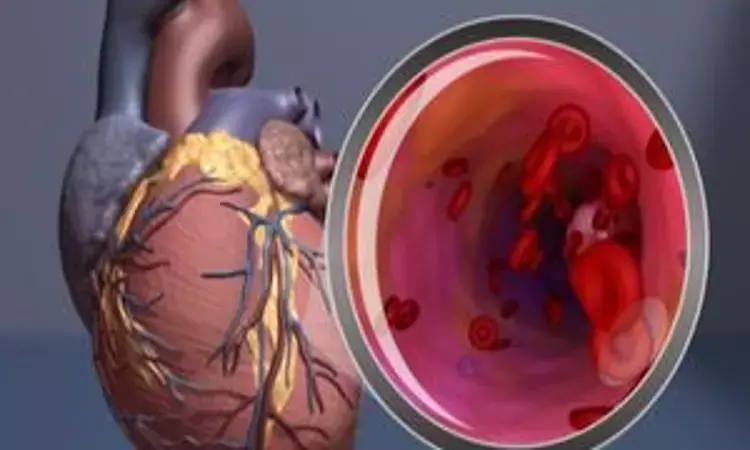- Home
- Medical news & Guidelines
- Anesthesiology
- Cardiology and CTVS
- Critical Care
- Dentistry
- Dermatology
- Diabetes and Endocrinology
- ENT
- Gastroenterology
- Medicine
- Nephrology
- Neurology
- Obstretics-Gynaecology
- Oncology
- Ophthalmology
- Orthopaedics
- Pediatrics-Neonatology
- Psychiatry
- Pulmonology
- Radiology
- Surgery
- Urology
- Laboratory Medicine
- Diet
- Nursing
- Paramedical
- Physiotherapy
- Health news
- Fact Check
- Bone Health Fact Check
- Brain Health Fact Check
- Cancer Related Fact Check
- Child Care Fact Check
- Dental and oral health fact check
- Diabetes and metabolic health fact check
- Diet and Nutrition Fact Check
- Eye and ENT Care Fact Check
- Fitness fact check
- Gut health fact check
- Heart health fact check
- Kidney health fact check
- Medical education fact check
- Men's health fact check
- Respiratory fact check
- Skin and hair care fact check
- Vaccine and Immunization fact check
- Women's health fact check
- AYUSH
- State News
- Andaman and Nicobar Islands
- Andhra Pradesh
- Arunachal Pradesh
- Assam
- Bihar
- Chandigarh
- Chattisgarh
- Dadra and Nagar Haveli
- Daman and Diu
- Delhi
- Goa
- Gujarat
- Haryana
- Himachal Pradesh
- Jammu & Kashmir
- Jharkhand
- Karnataka
- Kerala
- Ladakh
- Lakshadweep
- Madhya Pradesh
- Maharashtra
- Manipur
- Meghalaya
- Mizoram
- Nagaland
- Odisha
- Puducherry
- Punjab
- Rajasthan
- Sikkim
- Tamil Nadu
- Telangana
- Tripura
- Uttar Pradesh
- Uttrakhand
- West Bengal
- Medical Education
- Industry
Some supplements shown to improve cardiovascular health in a recent study

Antioxidants such as amino acids, omega-3 fatty acids, and vitamin C are abundant in healthy diets, yet the impact of these micronutrients on cardiovascular health has long been the subject of debate. Now, a newly published meta-analysis in the Journal of the American College of Cardiology gives clarification.
The data from a total of 884 trials on micronutrients taken as dietary supplements were evaluated and analyzed by researchers. They discovered a number of micronutrients that lower cardiovascular risk, as well as others that provide no benefit or perhaps have a detrimental impact. More than 883 thousand participants participated in the combined research.
We constructed a comprehensive, evidence-based integrative map for the first time to describe and quantify the possible impacts of micronutrient supplementation on cardiometabolic outcomes. The research emphasizes the significance of micronutrient variety and the equilibrium between health benefits and hazards.
The results might serve as the foundation for future clinical studies examining the effect of particular combinations of micronutrients on cardiovascular health.
Antioxidant supplements have long been believed to contribute to heart health. This is due to the fact that these nutrients lower oxidative stress, a recognized contributor to a variety of cardiovascular illnesses. Diets that are beneficial for the cardiovascular system, such as the Mediterranean diet and the Dietary Approach to Stop Hypertension (DASH), include foods that are naturally high in antioxidants. Inconsistent outcomes from trials of antioxidant supplements are one reason why this method has not yet been extensively embraced in preventive cardiology.
The majority of research on micronutrient supplementation has focused on the health impacts of a single or a small number of vitamins and minerals. It was determined to adopt a thorough and systematic approach to evaluating all the publicly accessible and available research documenting the effects of micronutrients, including phytochemicals and antioxidant supplements, on cardiovascular risk factors and numerous cardiovascular illnesses.
The researchers analyzed 27 randomized, controlled intervention studies assessing various antioxidant supplements. They discovered compelling evidence that several had cardiovascular benefits. Omega-3 fatty acid reduced death from cardiovascular disease, folic acid decreased stroke risk, and coenzyme Q10, an antioxidant frequently branded as CoQ10, decreased mortality from all causes. Omega-6 fatty acid, L-arginine, L-citrulline, Vitamin D, magnesium, zinc, alpha-lipoic acid, melatonin, catechin, curcumin, flavanol, genistein, and quercetin were also shown to reduce cardiovascular risk.
Not every supplement was advantageous. Vitamins C, D, E, and selenium had no influence on cardiovascular disease outcomes or type-2 diabetes risk over the long term. And beta carotene supplementation increased mortality from all causes.
The results indicate, according to the researchers, the necessity for more tailored, precision-based dietary therapies using particular combinations of healthful supplements. To evaluate the long-term effects of certain micronutrients on health, further research is required, especially large, high-quality interventional studies.
Identifying the right combination of micronutrients is essential, since not all of them are useful and some may even be detrimental.
References –
Peng An, Sitong Wan, Yongting Luo, Junjie Luo, Xu Zhang, Shuaishuai Zhou, Teng Xu, Jingjing He, Jeffrey I. Mechanick, Wen-Chih Wu, Fazheng Ren, Simin Liu. Micronutrient Supplementation to Reduce Cardiovascular Risk. Journal of the American College of Cardiology, 2022; 80 (24): 2269 DOI: 10.1016/j.jacc.2022.09.048
MBBS, MD (Anaesthesiology), FNB (Cardiac Anaesthesiology)
Dr Monish Raut is a practicing Cardiac Anesthesiologist. He completed his MBBS at Government Medical College, Nagpur, and pursued his MD in Anesthesiology at BJ Medical College, Pune. Further specializing in Cardiac Anesthesiology, Dr Raut earned his FNB in Cardiac Anesthesiology from Sir Ganga Ram Hospital, Delhi.
Dr Kamal Kant Kohli-MBBS, DTCD- a chest specialist with more than 30 years of practice and a flair for writing clinical articles, Dr Kamal Kant Kohli joined Medical Dialogues as a Chief Editor of Medical News. Besides writing articles, as an editor, he proofreads and verifies all the medical content published on Medical Dialogues including those coming from journals, studies,medical conferences,guidelines etc. Email: drkohli@medicaldialogues.in. Contact no. 011-43720751


